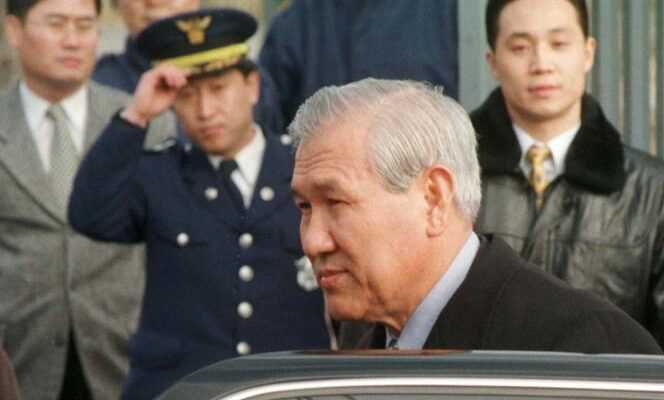Military turned politician, Roh Tae-woo who died Tuesday, October 26 in Seoul University Hospital, was between 1988 and 1993 both the last South Korean president supported by the army and the first chief of State of a South Korea committed to the path of democratization. His mandate remains marked by the adoption of a constitution still in force, the holding of the Seoul Olympic Games, an opening up to China and the USSR, and a rapprochement with North Korea.
Born in 1932 in Daegu (South East) in a Korea under Japanese rule, Mr. Roh is the son of a local civil servant. In high school, he met Chun Doo-hwan, a friendship that would play a major role in South Korean history. Enlisted in the army during the Korean War (1950-1953), the two men joined the Korean Military Academy. They graduated in 1955.
Mr. Roh became general in 1979. In December of the same year, two months after the assassination of authoritarian President Park Chung-hee (1917-1979), Chun Doo-hwan, head of military intelligence, carried out a coup. ‘State. He organized a mutiny with the help of a secret organization, Hanahoe, which brought together the 1955 graduates of the Military Academy. Roh Tae-woo being part of it, he provided him with the support of the 9e infantry division he commands.
An “era for ordinary people”
Mr. Chun imposes martial law in May 1980. Member of the junta, Mr. Roh takes part in the violent repression of demonstrators fighting in Gwangju (southwest) in favor of democracy. The intervention of elite troops killed nearly 200 people. Subsequently, Roh Tae-woo held several ministerial positions and contributed to the selection of Seoul to host the 1988 Olympics.
In 1987, Chun Doo-hwan made him his successor to the presidency, a process at the time purely formal, the head of state being appointed by a college of faithful of the regime. The announcement sparks protests against the military regime. As the Olympic Games approached, Roh Tae-woo gave in to the pressure and in December 1987 organized the first free elections since the fleeting democratic interlude of 1960.
He was elected thirteenth president of South Korea, taking advantage of the division of the opposition which presented two candidates, the future presidents Kim Young-sam (1993-1998) and Kim Dae-jung (1998-2003). Appearing smiling in public – a first for a South Korean leader – Mr. Roh promises the advent of a “Era for ordinary people”. He tolerates caricature, even of a Chun Doo-hwan now reclusive in a Buddhist temple to escape accusations of corruption and violence.
You have 37.59% of this article left to read. The rest is for subscribers only.
